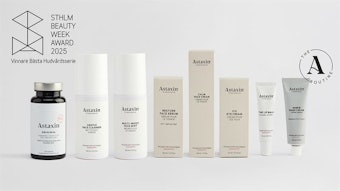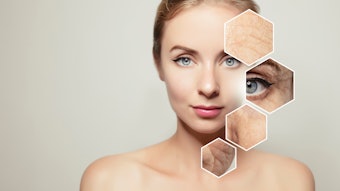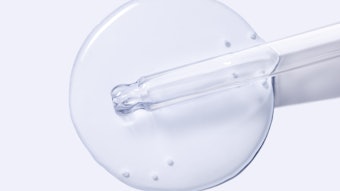
Why does our skin age? Simply put, everything is slowing down and does not have the ability to repair like it did when we were younger. Our skin cells have a natural turnover ability and cycle. When we are younger this is taking place about every 28 days, keeping our skin softer and younger looking. As we get into our 30s, this begins to change and slow down. Cell turnover slows down to 40-45 days before they go through the turnover process. This is where aging begins, buildup, rougher texture, and more importantly, fine lines and wrinkles start to form when cells cannot turn over efficiently.
Why do we go to a 40-45 day cellular turnover? As skin ages, the dermis is losing resources to effectively support cell mitosis. The secretion of collagen (protein) by the skins’ fibroblasts, fibrous cellular material that helps the formation of connective tissue, begins to slow down, diminishing the structural framework of tissue keeping it toned and elastic. So, when we combine the lack of collagen proteins from our fibroblasts with a slower production of skin cells, our skin begins to thin and fine lines and wrinkles start coming to the surface. It is a natural part of aging. However, in today’s time environment, diet and excessive exfoliation accelerate skin aging.
Related: Essential Vitamins for Skin Care
Vitamin A Benefits
As an essential pro-youth agent, vitamin A: (a.k.a retinyl palmitate, retinol, retinal, retinoic acid and all types of retinoids) stimulates and speeds up cellular regeneration, improves circulation, decreases inflammation and increases fibroblast activity, and thereby, increases cellular turnover and collagen production. This fabulous ingredient allows the fibroblast cell to synthesize collagen and elastin, which in turn thickens and tightens the skin, reducing wrinkles, slowing down the aging process and providing a younger appearance.
For many years, vitamin A has also been used for the prevention and treatment of photoaging. Exposure to UV light breaks down your skin’s connective tissue (fibroblasts), and without the supportive connective tissue, skin loses strength and flexibility, causing sag and wrinkles prematurely. Retinoids abolish cellular atypia, increase compacting of the stratum corneum and reduce skin hyperpigmentation caused by sunlight. Recent evidence suggests that retinoids even play a role in the prevention of aging because of its inhibitory effects on metalloproteinases (MMPs) expression, which can degrade skin-strengthening collagen and other structural proteins.
An important element to vitamin A is that it does not stay stored in the body longer than 24 hours. It is important to consume foods high in vitamin A content and apply a vitamin A product to the skin nightly. Look for a vitamin A that does not create exfoliation or inflammation, as this will counteract the benefits. Retinol and retinaldehyde are the most effective forms of vitamin A for skin application. They both convert to retinoic acid, which is the form of vitamin A that the body recognizes and uses to stimulate fibroblasts and create more collagen and elastin, keeping skin younger-looking and wrinkle free! Vitamin A works by normalizing skin functions, so it has the potential to correct a plethora of skin conditions including aging.
Continue reading about vitamin A's benefits for signs of aging in our August Digital Magazine...
Shannon Esau the CEO and national educator at Rhonda Allison Cosmeceuticals. She brings more than 20 years experience in the esthetic industry. Esau owned skin care salons in the Dallas/Ft. Worth area, has studied chemistry in skin care formulations and has been mentored by Rhonda Allison for decades. www.RhondaAllison.com and www.REDmethod.com. For more information about Pigmentation Solutions, go to rapigmentationsolutions.com.











